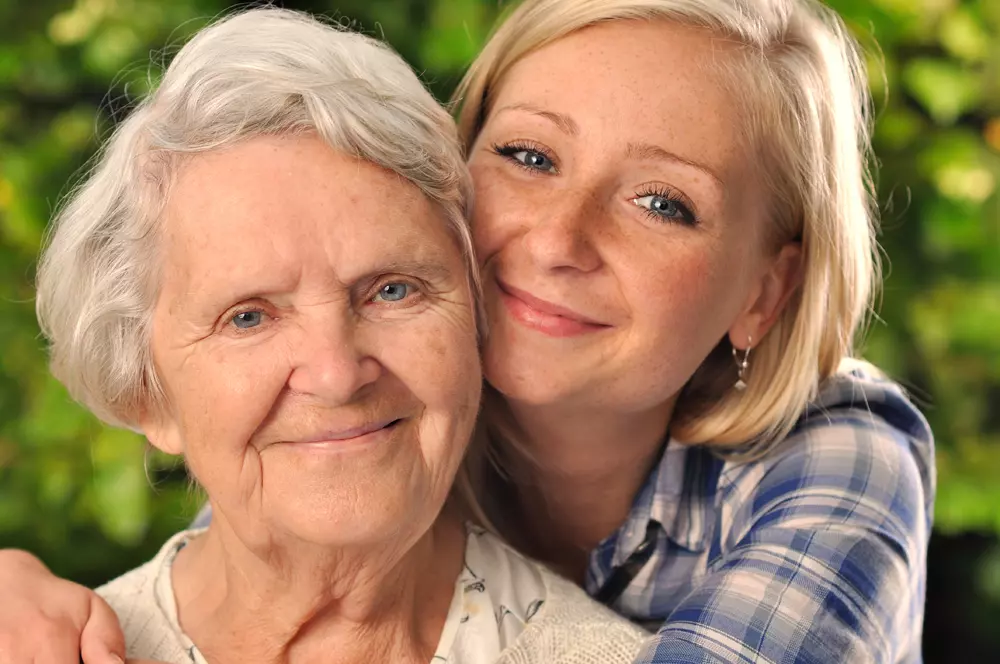
Finding the right care home for a loved one is a critical decision, especially when their comfort, safety, and quality of life are at stake. Knowing the evaluation criteria for a quality care home in the UK can make the selection process clearer and more manageable. This guide explores key criteria to consider when assessing a care home, from safety and medical care to staff qualifications and resident satisfaction.
1. Safety and security measures
One of the most important aspects of a quality care home is its commitment to safety and security. When evaluating a care home, pay attention to safety features and emergency protocols.
Emergency response systems: quality care homes are equipped with emergency call systems in rooms and communal areas, ensuring quick assistance when needed.
Secure premises: look for secure entry and exit points to prevent wandering, especially if the care home serves residents with dementia or cognitive impairments.
Fire safety standards: confirm that the care home meets fire safety regulations, including regular fire drills, smoke alarms, and accessible fire exits.
Accessibility and mobility aids: high-quality care homes should have accessible design features like ramps, handrails, and wheelchair-friendly spaces.
Safety measures not only protect residents but also offer peace of mind for families.
2. Qualified and compassionate staff
Find YOUR ideal care home NOW!
The quality of staff in a care home directly impacts residents’ experiences and well-being. It’s essential to assess the qualifications, experience, and attitude of the care team.
Training and qualifications: staff should have appropriate certifications in elderly care, first aid, and any specialized training relevant to dementia or end-of-life care.
Staff-to-resident ratio: a low staff-to-resident ratio means more personalized attention and support for each resident.
Resident-centered care: observe interactions between staff and residents. Compassionate staff will prioritize residents’ comfort, dignity, and individual needs.
Continuous staff training: quality care homes provide regular training for their staff to stay updated on best practices in elderly care.
A well-trained, compassionate staff ensures residents receive high-quality care and a positive daily experience.
3. Range of care services provided
A quality care home should offer a range of services to meet varying needs. Evaluating available services helps ensure that the care home can support your loved one’s specific requirements.
Personal care: assistance with bathing, dressing, grooming, and other daily tasks should be readily available to residents who need it.
Medical support: look for care homes that provide regular medical assessments, medication management, and access to on-site or visiting healthcare professionals.
Specialized care options: if your loved one requires dementia care, palliative care, or rehabilitation, confirm that the care home offers these specialized services.
Support for social and mental well-being: quality care homes offer mental health support, recreational activities, and social programs to enhance residents' quality of life.
A comprehensive range of care services allows for a more customized care experience and supports residents’ changing needs over time.
4. Hygiene and cleanliness standards
Maintaining a clean and hygienic environment is essential for the health and well-being of residents in a care home.
Cleanliness of communal areas: check that dining areas, lounges, bathrooms, and other shared spaces are kept clean and well-maintained.
Hygiene protocols: high-quality care homes follow strict hygiene protocols, especially in handling personal care tasks, food preparation, and laundry services.
Infection control measures: evaluate the care home’s infection control practices, such as regular sanitization, use of personal protective equipment, and guidelines for managing illness outbreaks.
Hygiene standards not only prevent infections but also contribute to a more comfortable and pleasant living environment for residents.
5. Personalized care plans
Each resident in a care home has unique needs, and quality care homes develop personalized care plans tailored to each individual.
Initial assessment: a thorough assessment at admission should consider the resident’s physical, mental, and emotional needs to create a customized care plan.
Regular reviews and updates: the care plan should be reviewed and adjusted regularly to accommodate any changes in the resident’s health or preferences.
Family involvement: quality care homes involve families in care planning, keeping them informed and allowing them to share input on their loved one’s care.
Personalized care plans ensure that each resident receives the appropriate level of support while respecting their preferences and dignity.
6. Dining and nutritional options
Proper nutrition is essential for maintaining health and energy, especially for elderly individuals. Quality care homes pay close attention to residents’ dietary needs.
Balanced meal options: look for a care home that provides balanced, nutritious meals with options to cater to dietary restrictions or health conditions.
Involvement in meal planning: some care homes involve residents in meal planning to ensure food preferences are met.
Assistance with eating: residents who need help with eating should receive assistance from staff to ensure they get adequate nutrition.
Snacks and hydration: quality care homes offer snacks and encourage regular hydration, especially for residents who may forget to drink water.
Dining and nutrition play a critical role in residents' overall health, so this should be a top consideration.
7. Recreational activities and social interaction
Social engagement and recreational activities are crucial for mental and emotional well-being. Quality care homes offer a variety of activities that cater to different interests and abilities.
Organized activities and events: quality care homes organize group activities like games, exercise sessions, crafts, and outings to keep residents engaged.
One-on-one interaction: in addition to group activities, staff should spend one-on-one time with residents to build rapport and provide companionship.
Celebration of special events: many quality care homes organize celebrations for birthdays, holidays, and other events to foster a sense of community.
Encouragement of social connections: opportunities for residents to interact with each other help reduce feelings of isolation.
A well-rounded activity program ensures that residents stay mentally active, socially connected, and emotionally supported.
8. Transparent communication and family involvement
A quality care home maintains open communication with residents' families and encourages family involvement.
Regular updates: families should receive regular updates on their loved one’s health, activities, and any changes in care.
Easy access to management: a good care home welcomes feedback and makes it easy for families to reach management with questions or concerns.
Visiting policies: consider a care home with flexible visiting hours, allowing family members to spend time with their loved ones when possible.
Transparent communication fosters trust and reassures families that their loved one is in good hands.
9. Resident satisfaction and feedback
One of the most telling signs of a quality care home is the satisfaction of its residents and their families.
Resident feedback: speak with residents, if possible, to understand their experience in the care home.
Family testimonials: family feedback can offer valuable insight into the quality of care, staff attentiveness, and overall satisfaction.
Third-party reviews and inspections: look at reviews from independent organizations, as well as inspection reports, to get an objective perspective on the care home’s quality.
Comparison of Care Home Services
| Service | Standard Care Home | High-Quality Care Home |
|---|---|---|
| Medical Support | Basic medication management | On-site nurses, regular health checks, and visiting specialists |
| Personalized Care Plans | Standardized approach | Tailored plans with regular updates and family involvement |
| Staffing Levels | Higher staff-to-resident ratios | Lower ratios for more personalized attention |
| Social Engagement | Limited group activities | Individual and group programs, outings, and community events |
| Nutrition | Fixed meal plans | Balanced, customizable diets with dietary accommodations |
Resident satisfaction and feedback help provide a clearer picture of the care home’s environment, quality of care, and reputation.
FAQ: Choosing a Quality Care Home
What should I look for in a care home?
A good care home should prioritize safety, offer well-trained staff, provide personalized care, maintain high hygiene standards, and encourage social activities.
How do I know if a care home has qualified staff?
Check for staff certifications in elderly care, dementia support, and first aid. Low staff-to-resident ratios and continuous staff training are also good indicators.
What medical services should a quality care home provide?
Look for homes that offer on-site medical support, medication management, and regular health assessments by visiting healthcare professionals.
Why is social interaction important in care homes?
Engaging in activities, socializing with peers, and participating in community events help prevent loneliness and improve mental well-being.
How often should family members be updated about a resident’s care?
A quality care home should provide regular updates on health, activities, and any changes in care plans. Family involvement in decision-making is crucial.
What should I check regarding hygiene and cleanliness?
Observe the cleanliness of communal areas, ask about infection control procedures, and ensure that hygiene protocols are strictly followed.
Can I visit a care home before making a decision?
Yes, visiting the care home, speaking with staff, and interacting with residents is essential to assessing the quality of care.
How do care homes accommodate dietary needs?
High-quality care homes offer balanced meal plans, cater to dietary restrictions, and ensure proper nutrition for residents who need assistance with eating.
What financial options are available for care home placements?
Some residents may qualify for government funding, financial aid, or private insurance coverage. It’s best to check with the care home about available payment options.
How can I ensure my loved one receives personalized care?
Choose a care home that develops individualized care plans, regularly reviews them, and involves family members in care decisions.
Evaluating a quality care home in the UK requires assessing multiple criteria, from safety measures and staff qualifications to personalized care plans and resident satisfaction. By focusing on these critical areas, families can choose a care home that meets their loved one’s needs and provides a supportive, safe, and engaging environment.
We are here to help you choose a care home or facility best suited to your needs. Do not hesitate to contact us on the following number: 0230 608 0055 or fill out this form.
Share this article :
Latest posts
You are looking for an establishment for your loved one ?
Get availability & prices
Fill in this form and receive
all the essential information
We would like to inform you of the existence of the opposition list for telephone canvassing.











